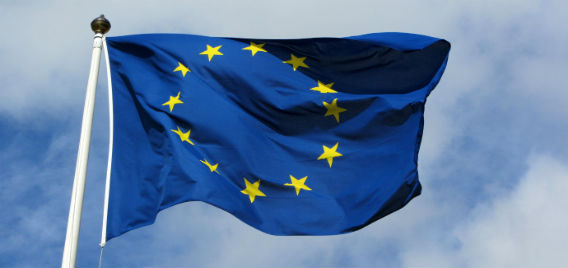Officials from Bosnia and Herzegovina and the European Union met in a hybrid format on 30 March 2023 for the 6th meeting of the sub-committee on trade, industry, customs and taxation, under the Stabilisation and Association Agreement (SAA) between the European Union and Bosnia and Herzegovina.[1]
The meeting was co-chaired for Bosnia and Herzegovina by Ms Brankica Pandurević, Assistant Minister in the BiH Ministry of Foreign Trade and Economic Relations, and for the European Commission by Ms Mary Teresa Moran, Deputy Head of Unit in the Directorate-General for Neighbourhood and Enlargement Negotiations.
At the meeting, the parties discussed developments in these areas and exchanged detailed trade statistics. The Commission urged Bosnia and Herzegovina to step up considerably its efforts to enhance institutional and administrative capacities, coordination and legal framework in all related areas, and recalled the importance of countrywide sector strategies.
On trade matters, the EU noted strong signs of increasing trade interdependence between BiH and the EU, despite the COVID-19 pandemic and the Russian war of aggression in Ukraine. Preliminary trade statistics suggest a strong increase in bilateral trade compared to 2021 and even to the pre-pandemic year 2019. The EU reminded Bosnia and Herzegovina of the importance of respecting the provisions of the SAA, in order to continue to benefit from its enhanced access to the EU market and to that end, called on Bosnia and Herzegovina to refrain from introducing any new, unjustified trade restricting measures. The EU urged Bosnia and Herzegovina to bring the legislation on VAT and on excise duties in line with the EU acquis, notably on excise duties on beer. The EU also encouraged Bosnia and Herzegovina to finalise its accession to the WTO as soon as possible, and to continue implementing the Common Regional Market Action Plan 2021-2024, including by ratifying the three mobility agreements from the recent Berlin Summit in November 2022.
On the free movement of goods, the EU called on Bosnia and Herzegovina to adopt a countrywide strategy for quality infrastructure, and to continue the alignment of domestic legislation with European standards. In terms of market surveillance, administrative capacity is a recurring problem for the country. The EU therefore called for resources to be made available in Bosnia and Herzegovina to make these reforms, especially in light of the increased expectations that come with candidate status.
The EU noted limited progress in the area of industrial policy and stressed the need for a harmonised countrywide approach to the planning and implementation of SME and industrial policies. In particular, the EU encouraged the finalisation and adoption of strategic guidelines for the harmonisation of support to SMEs and entrepreneurship. It called on BiH to identify the divergences among the industrial policy strategies and action plans on the various levels of government, ensuring coordination and involvement of industrial enterprises in policy formulation and implementation.
On taxation and customs, the EU and Bosnia and Herzegovina exchanged on developments in VAT, the Union Customs Code, e-signature and mutual administrative cooperation. The EU called for the strengthening of the administrative capacity and staffing levels of the Indirect Taxation Authority. The EU also urged Bosnia and Herzegovina to eliminate all administrative burdens in the area of the electronic signature in order to ensure its interoperability and a harmonised countrywide system. The fight against customs fraud, in particular, tobacco smuggling, remains important for both the EU and Bosnia and Herzegovina. The EU therefore called on Bosnia and Herzegovina to join the WHO FCTC Protocol to Eliminate the Illicit Trade on Tobacco Products and to implement a system for tracking and tracing of cigarettes.
[1] OJ L 164, 30.6.2015, p. 2–547, Stabilisation and Association Agreement

